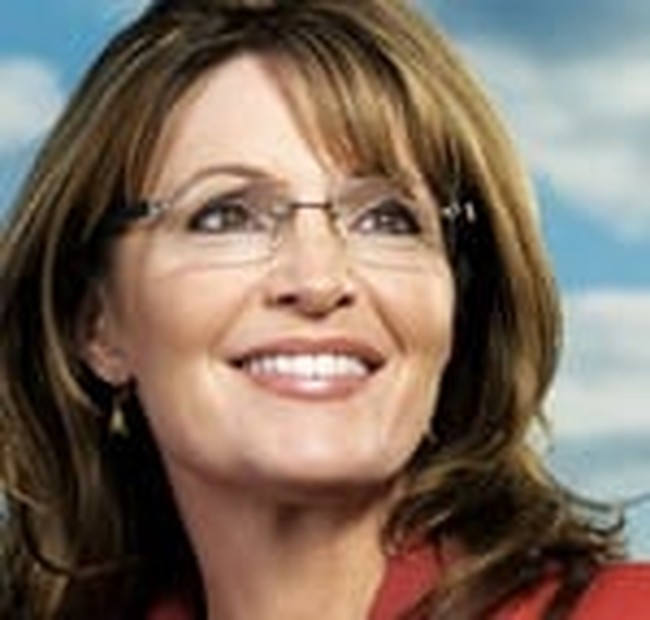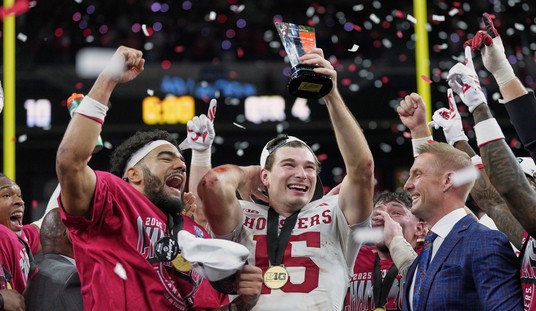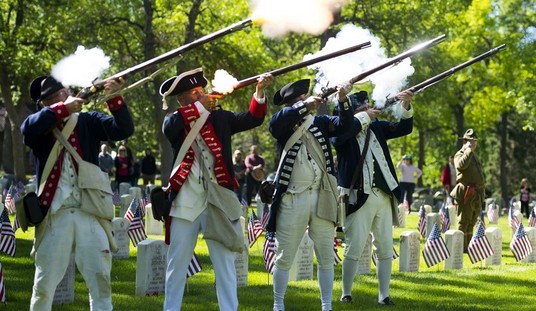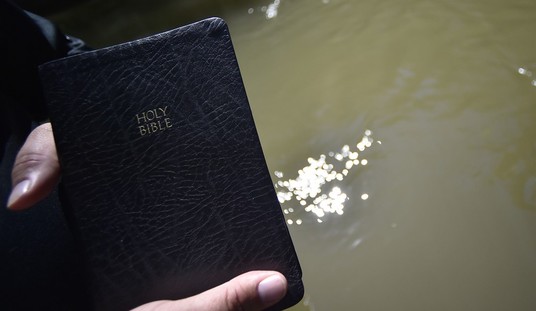There Are Many Reasons to Run for President
On Monday, former Virginia Governor Jim Gilmore became the 17th Republican to announce he’s running for president. Not ten, not twelve — seventeen declared candidates, and there may be one or two more in the next few months. With such a broad field, many candidates simply do not have a chance of actually winning the race. One of the long shots might win, but their decision to run could be based on other factors.
2016 seemingly presents a perfect opportunity for a Republican win. Polls indicate more than half of Americans disapprove of Barack Obama’s job as president, and a majority dislike his signature policy — Obamacare. The Democratic heir apparent, Hillary Clinton, enjoys nearly universal name recognition, but has negative favorability ratings — people just don’t like her. In key states, she ranks near the bottom on favorability — behind only Donald Trump as the least liked.
The latest polls show Wisconsin Governor Scott Walker, Florida Senator Marco Rubio, and former Florida Governor Jeb Bush all beating Clinton in key swing states — Colorado, New Hampshire, and Iowa. In Colorado, Walker beats her by 9 points.
But these are only 3 of the 16 Republicans running for president. Why is the roster so large? Furthermore, why are qualified governors and former governors like Bobby Jindal, John Kasich, Rick Perry, Chris Christie, Jim Gilmore, and George Pataki running — when none of them has as much as 3 percent in national polls?
New Hampshire voters may consider this an “embarrassment of riches,” but when a popular Midwest governor of an important swing state like Ohio can only manage 1.8 percent of the vote, and still decides to run, you know something fishy is going on. Many of these candidates may still be running to win — but also to gain something else.
Campaigning as a Full-Time Job
 In July 2009, a popular governor made a confusing decision — Sarah Palin decided to resign. Perhaps understanding she could make a stronger impact for America as a right-wing star than as a lame-duck governor, she chose campaigning over governing — and made a huge payday. Whatever inspired the switch to full-time celebrity, it made Palin rich.
In July 2009, a popular governor made a confusing decision — Sarah Palin decided to resign. Perhaps understanding she could make a stronger impact for America as a right-wing star than as a lame-duck governor, she chose campaigning over governing — and made a huge payday. Whatever inspired the switch to full-time celebrity, it made Palin rich.
As Governor, Palin made $125,000 per year — not bad, but not rich, according to one of former presidential candidate John McCain’s former advisors. “Deep down, she wanted to make money” he told New York Magazine. “There was always financial stress. They’re not wealthy people.”
Retiring from the governorship, Palin became — in essence — a full-time campaigner. In May 2009, she signed a $7 million book deal with Harper Collins, and went on tour. Added to the Washington Speakers Bureau (a company which lists George W. Bush and Rudy Giuliani as its clients), Palin made $100,000 per speech. In the year after resigning as governor, she made $12 million.
Dr. Ben Carson’s post-neurosurgeon experience has been kind on his pocketbook as well. Since January 2014, he has earned $27 million from delivering 141 speeches and publishing three books. Texas Senator Ted Cruz made $1.5 million for his new book, A Time for Truth. Former Hewlett Packard CEO Carly Fiorina racked up almost $1 million during the past year for speeches and sales of her memoir.
As New York Magazine’s Gabriel Sherman points out, the 2016 GOP may seem like “less of a political party and more like a talent agency for the conservative media industry.” Each declaration of a presidential run may prove less a push for power and more an audition for celebrity status.
Each candidate receives free hours of TV, radio, and internet attention, with the likely promise of bigger things to come. “Even if you lose, you exponentially increase your marketability,” a GOP consultant told Sherman. “Right now, let’s say you’re giving speeches for $20 grand. You run and it becomes $40,000. If you do well, maybe there’s a Fox show. Then you write a book about how to save the party.”
This provides a strong economic incentive to declare those five magic words — “I am running for president!”
The Search for Political Favors
When the prestige of being a national candidate wears off, many of these challengers will look up new job postings — in a new administration. In the case of a Republican loss, they have celebrity to fall back upon. But as each of the low-polling candidates pulls out, they will do everything they can to curry favor with the eventual nominee.
Just as President Barack Obama nominated his key primary challenger as secretary of State, a new Republican president will likely have offices picked out for his former rivals. After all, President Ronald Reagan chose his challenger, George H. W. Bush, for his running mate.
While there is always a chance the competent governors who lag in the polls could jump ahead if one of the frontrunners falls, this may be one strong motivation behind candidates like Kasich, Perry, Jindal, Christie, and Pataki. After all, Jindal has a strong reputation for policy — not popularity — and may serve as an excellent cabinet member for a President Bush, Rubio, or Walker.
If prominent Senators Ted Cruz and Rand Paul (and on the other side, Lindsey Graham) never make it past the finish, they can more easily team up with the new administration and nudge the eventual nominee closer to their values and policy positions.
Even while Ben Carson and Carly Fiorina make millions running for president, they may forge the relationships they need to end up in high cabinet positions — Carson as surgeon general and Fiorina as VP or a powerful woman in the cabinet.
Donald Trump, with his self-financed campaign and bombastic personality, is perhaps the one person who won’t make money or gain favors — but he’s clearly enjoying himself and adding to the conversation.
It Really Is an Embarrassment of Riches
But enough with ulterior motives — the large GOP field also provides a strong slate of qualified candidates. In 2008, unknown first-term Senator Barack Obama seemed a long shot for the Democratic nomination– so did Ronald Reagan in 1980. While Walker, Bush, and Rubio may be more polished than the 2008 version of Hillary or the 1980 version of George H.W. Bush, one of this year’s star-powered candidates like Ted Cruz, Carly Fiorina, or Ben Carson could catch a surge at just the right time.
The 2016 field not only includes the first sitting governor to survive a recall in American history, and the longest-serving governor in Texas’ history, it also boasts 13 public servants: 8 governors and 5 senators. Even the candidates with no political experience have an aura all their own: the filthy-rich populist media mogul, the woman CEO who will out-feminize Hillary Clinton, and a rags-to-riches black doctor who champions America’s religious roots.
While some have called this slate of candidates “underwhelming,” it represents an extremely diverse swath of Republicans across the country. From the libertarian wing of Rand Paul supporters, to the immigration-reform backers of Marco Rubio, to the right-to-work crowd behind Scott Walker, each candidate represents a slice of a party with new ideas and solutions — aiming to course-correct after 6 years of Obama.
One question remains to be answered. Will the 2016 GOP primary turn into a bloody Game of Thrones? Or will it allow the party to coalesce behind a strong standard-bearer promising — in the slogan of one Marco Rubio — “A New American Century”? Only time — and millions of dollars in Super PACs — will tell.









Join the conversation as a VIP Member